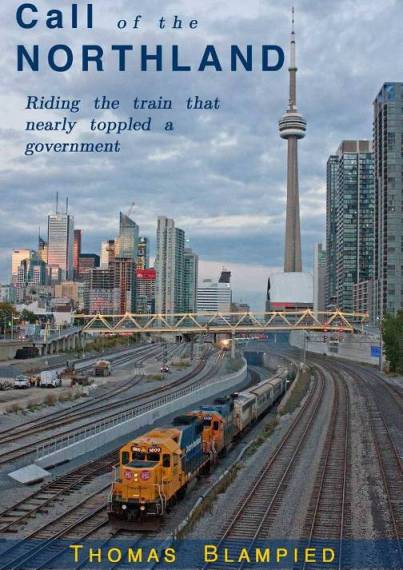To order a copy of Call of the Northland: Riding the Train That Nearly Toppled a Government, click here: http://www.northland-book.net/buy.html
Historian, author and photographer Thomas Blampied has been interested in railways for as long as he can remember. Growing up east of Toronto, he spent summer evenings sitting trackside with his father watching streamlined VIA trains race past and long freight trains rumble by. From these early railway experiences grew a lifelong passion for railways and rail travel which has manifested itself through model railroading, photography, writing, railway preservation and the academic study of railway history. This is his fourth book about railways in Ontario. He has studied in both Canada and the United Kingdom and currently resides in Southern Ontario.
Chapter 4: The North
The next station was one I had been looking forward to for many years – Cobalt. Legend has it that the town’s silver bonanza was set off by one Fred La Rose, a blacksmith, who threw a hammer to scare away a fox. According to the tale, when his hammer missed the animal and hit the ground, it uncovered a vein of silver. While this story might be true, the credit for the first silver find goes to J.H. McKinley and Ernest Darragh, who were scouting for suitable timber for railway ties.
Their claim predated La Rose’s by a month and, besides, La Rose incorrectly identified his silver vein as copper. The approach to “Silver City,” renowned for its steep and winding streets, is truly special as the line carves a long, sweeping curve around the lakeshore before passing the station. We were one minute late at 4:21 but, with nobody there, we rolled right by the large station and on past the preserved mine buildings. This is what I had wanted to see for so long. Some of the most iconic shots of the ONR over the years have been taken from the road bridge overlooking this spot – with the mine to the left and the railway snaking around an “s” curve to the right.

























